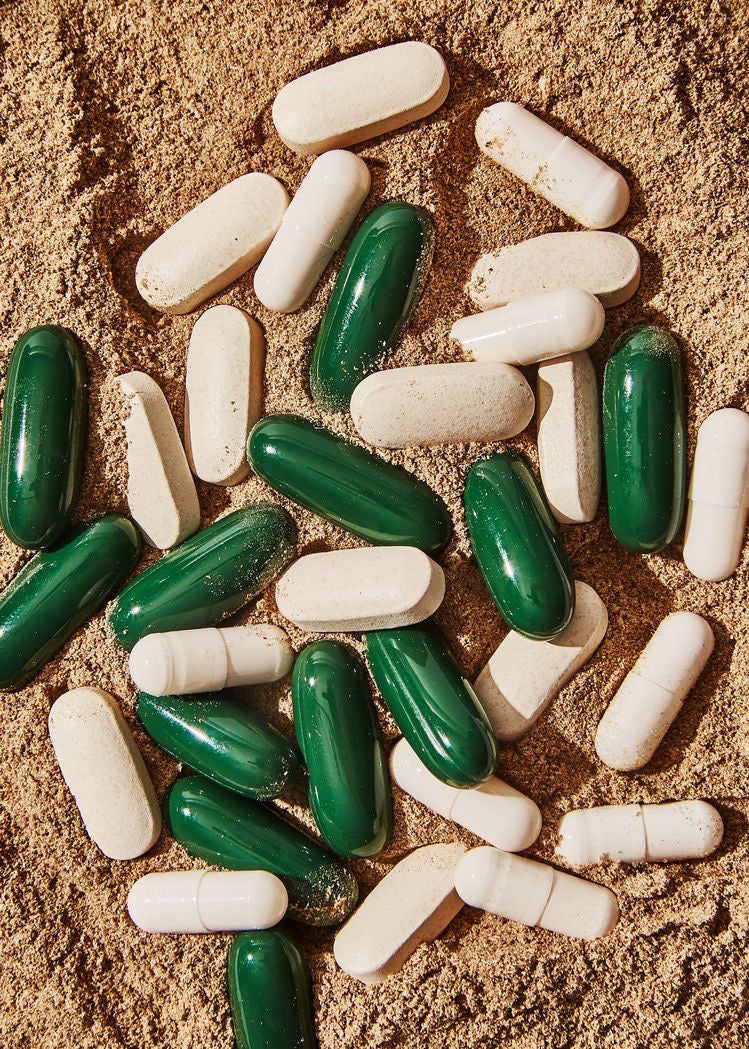A Worthy Addition to Your Supplement Regimen: Quercetin

As we dip further into 2021, we’re reflecting on the past year and the recent events that have caused a significant shift in how we work, how we show up in our relationships, and the ways we think about personal health. While the negative aspects of 2020 are typically the most discussed, this has also been a formative time that has caused us to pause and reflect, and there’s no doubt this will positively impact the future.
In the past year, we’ve seen a major improvement in the quality of our air and water and the conversation around personal health has been amplified. The importance of emotional and physical wellness is discussed more now than ever, and more people have taken the initiative to adopt fitness routines, nurture their mental health, and improve their diets in order to boost immunity.
If you’ve been taking measures to strengthen your immune system through diet, you’ve likely learned all about the benefits of vitamin C, D, and B12. Maybe you’ve introduced astragalus, lemon balm, fennel, ginger, and other herbs and roots into your wellness regimen. You probably know all about the importance of eating a diet that is anti-inflammatory and anti-viral and — chances are — you’re already consuming many foods that are rich in an antioxidant with powerful benefits: quercetin.
Quercetin is a plant pigment, also known as a flavonoid. Flavonoids are antioxidants that neutralize free radicals, lowering the body’s inflammation, preventing chronic disease, and slowing the aging process. Quercetin itself is a gorgeous citron yellow crystal known for its antiviral properties and, for some, it may be a beneficial addition to their supplement regimen.
Health Benefits of Quercetin
Quercetin offers a wide range of preventative health benefits and is safe to take as a supplement.
Potential health benefits of quercetin include:
- May reduce risk of viral infection.
Research suggests that quercetin may prevent and treat a wide range of viral illnesses including upper respiratory infections, herpes, and the flu. Clinical trials are currently being conducted to test the effectiveness of quercetin in treating COVID-19.
Flavonoids like quercetin prevent inflammation by neutralizing the free radicals that lead to an increased inflammatory response. This prevents many health problems caused by persistent inflammation such as heart and kidney disease, certain cancers, and arthritis.
Due to its anti-inflammatory properties, quercetin prevents the overactivation of cells that release histamines, the chemical that causes allergic reactions. For this reason, quercetin is directly linked to the alleviation of allergy symptoms including itching, watery eyes, hives, and swelling.
By reducing inflammation, quercetin may prevent cognitive conditions caused by oxidative stress. In addition, studies on mice have shown that quercetin injections reversed markers of Alzheimer’s and improved overall cognitive function. Mice in the early to mid stages of Alzeheimers showed marked improvement after being fed a diet of quercetin-rich foods. While more human studies are needed, these findings are promising.
Due to its anti-oxidant and anti-inflammatory properties, quercetin has been studied as a cancer preventative and has been shown to prevent the proliferation of certain cancers, including prostate, cervical, lung, breast, and colon.
Quercetin-Rich Foods and Supplements
A typical flavonoid intake ranges from 50-800mg per day, and about 75% of this is quercetin. The two foods highest in quercetin are raw capers and the edible portions of black and green tea, but most people’s main sources of quercetin are apples, onions, and other veggies. And while teas are high in quercetin, evidence suggests that the type of quercetin found in foods is more easily absorbed than that found in tea.
Common sources of quercetin include:
- Capers
- Red onion
- Shallots
- Red apples
- Asparagus
- Tomatoes
- Kale
- Grapes
- Broccoli
- Brussel sprouts
- Cabbage
- Blueberries
- Scallions
- Citrus fruits
- Berries
- Bell peppers
- Nuts
- Black, green, and elderberry tea
- Buckwheat
While most people who consume a nutritious diet intake quercetin on a regular basis, the bioavailability of quercetin in our food varies depending on the source and how it's prepared. For example, frying and boiling foods reduces their concentration of quercetin. For those looking to reap the maximum benefits quercetin has to offer, you may consider taking a supplement under the supervision of a medical professional.
Quercetin supplements are generally well-tolerated, though headaches and tingling of the extremities have been reported. It’s recommended to begin with a 500mg dose of quercetin, working up to a 1000mg daily dose. For proper absorption, choose a quercetin supplement containing bromelain or vitamin C. Until there’s more research, it is not recommended for women who are pregnant or nursing to take quercetin.
As we move further into 2021, we hope you continue expanding upon the beneficial shifts you’ve established in the past year, and that you allow each new understanding of proper diet and nutrition to inform the choices you make in your daily life. We’re encouraged by the amplification of the conversation around wellness, and look forward to seeing how this newfound awareness of our health shapes our collective future.
***THESE STATEMENTS HAVE NOT BEEN APPROVED OR REGULATED BY THE FDA. WE ARE NOT DOCTORS, THEREFORE ALWAYS CONSULT WITH YOUR DOCTOR FIRST.





